I understand the complexities behind the Gold Card vs Green Card debate—not just as an attorney, but as someone who suffered terrible consequences when my grandfather passed away. It destroyed my family. I vowed to make the world a better place by learning the law and becoming a lawyer and helping families get quality legal counsel. Read my story here.
What Is the Gold Card? Trump’s Break from Worldwide Taxation
The United States has long maintained its standard green card process for individuals seeking lawful permanent residence. Most holders end up owing U.S. taxes on their worldwide income—a major hurdle for global celebrities and high-net-worth international investors. Now, however, President Trump, partnering with notable figures like Howard Lutnick (U.S. Commerce Secretary) and Elon Musk (developing the tech platform), is touting a new immigration pathway: The Gold Card, often referred to as the “Trump Card.”
Marketed as a break from worldwide taxation, the Gold Card is rumored to exempt non-U.S. income from taxation, a dramatic departure from normal U.S. rules. But will it truly save you millions? And if you already have a traditional green card (like Nicki Minaj hypothetically does), should you consider upgrading? In this article, I’ll compare the old and new options in detail, demystify the legal implications, and provide actionable insights on estate planning and tax strategy if you’re considering the Gold Card. I’ll also highlight the potential pitfalls, including exit taxes and challenges with future legislation. Let’s dive in.
Why I Care: From Family Loss to Legal Strategy
Why trust me, J. O. Valentino?
Whether you’re a Grammy-winning singer on a world tour or a private family office managing billions across borders, I’ve likely dealt with your scenario. One thing I’ve learned: there’s no “one size fits all” in immigration or tax law. My job is to illuminate each path, identify landmines, and help you design a plan that secures your legacy.
Green Card Tax Burdens: Worldwide Income, IRS Filings, and Estate Taxes
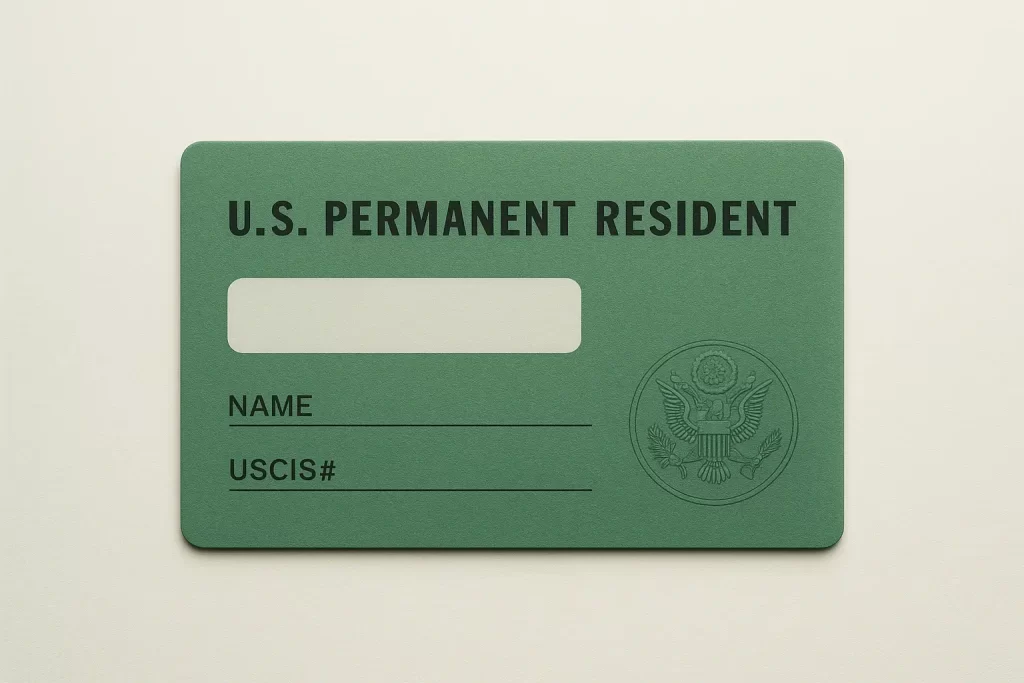
A traditional green card confers lawful permanent residence in the U.S. Typically, after five years (three if married to a U.S. citizen), you can naturalize. Yet it brings significant tax consequences:
- Worldwide Income Taxation: Under the Internal Revenue Code, U.S. residents must report and pay taxes on income earned anywhere in the world. While foreign tax credits mitigate double taxation, you often still face a higher compliance burden.
- Estate & Gift Taxes: Holding a green card can make you a U.S. domiciliary, subjecting your entire global estate to U.S. estate taxes (up to 40% above the exemption threshold).
- Annual Filings & Disclosures: IRS requirements like FATCA, FBAR, and foreign trust disclosures (Forms 3520, 5471, etc.) add layers of complexity.
For a global celebrity or international investor with extensive non-U.S. holdings, these obligations can be overwhelming. This backdrop sets the stage for why the Gold Card proposition is so compelling.
Green card holders are considered U.S. tax residents and must file global income annually, including FBAR and FATCA disclosures as detailed by the IRS here.
Gold Card vs Green Card: Key Differences in Taxes, Cost, and Process
President Trump and Secretary Lutnick have championed a bold immigration overhaul:
- $5 Million Flat Payment – Pay directly to the U.S. Treasury, bypassing the investment requirements of EB-5.
- Expedited Processing – Potentially shortens wait times; Musk is said to be creating a streamlined digital application platform.
- Foreign Income Exemption – A radical claim: No U.S. taxes on non-U.S. income for Gold Card holders, effectively giving them territorial tax treatment.
- Estate Tax Unknowns – Implementation details remain fuzzy. Some speculate Gold Card holders may still face estate taxes on worldwide assets unless further legislation clarifies.
This structure aims to attract uber-wealthy individuals to reside (and spend) in the U.S. while granting them tax breaks typically reserved for tax havens. Critics question whether this can be done via executive order alone.
How the Gold Card Could Change U.S. Tax Residency Rules
Under normal U.S. law:
- Green Card Holders = Resident Aliens for tax; must pay on global income.
- Gold Card Holders = Potentially Non-Resident on foreign income, Resident only on U.S. income.
If the Gold Card is implemented as promised, the U.S. would effectively not tax overseas earnings for holders. Estate tax treatment remains uncertain, but pre-immigration (or pre-upgrade) asset protection is advisable (e.g., trusts, gifting) to shield global property from potential U.S. estate taxes.
Nicki Minaj & the Gold Card: Could She Save $17M in Taxes?
Take Nicki Minaj (hypothetically a non-U.S. citizen celebrity). Suppose she grosses $20 million/year, $10 million from non-U.S. sources.
- Traditional Green Card: She pays U.S. tax on the full $20M. Even after foreign tax credits, she might face an extra $1.7M in U.S. taxes annually on foreign income. Over 10 years, that’s $17 million.
- Gold Card: If foreign income is exempt, she’d save most of that $1.7M every year. Even after a one-time $5 million fee, the net savings could be enormous over her career.
Would Nicki Minaj regret having the old green card? Potentially—if the Gold Card truly allows her to keep foreign income fully untouched by the IRS. However, everything hinges on final regulations and whether current green card holders can upgrade without incurring an exit tax.
Want the Full Guide?
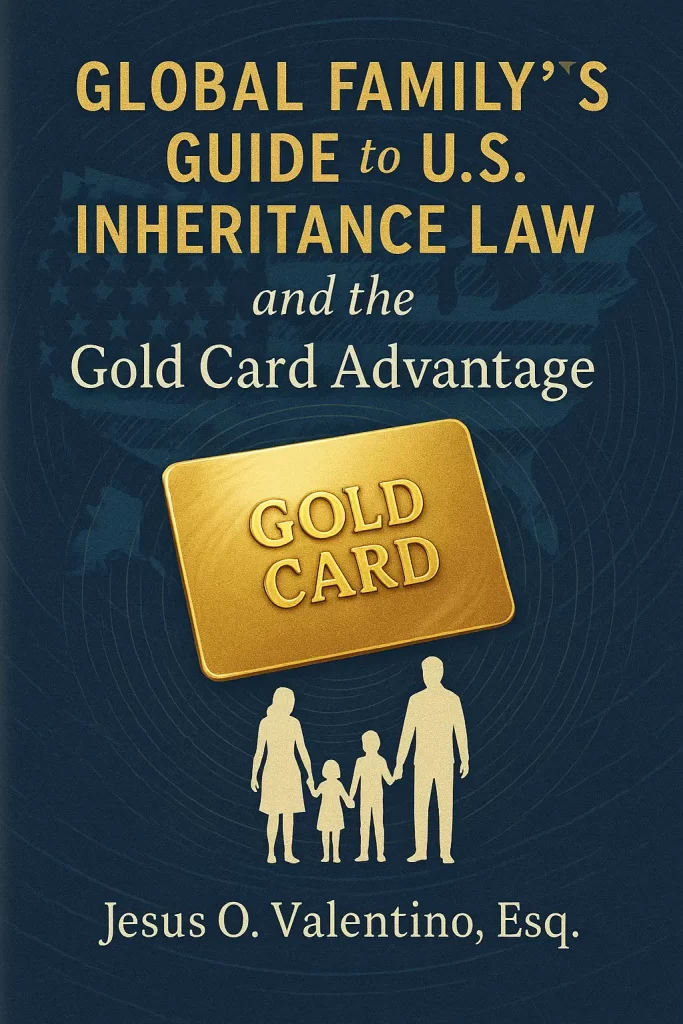
Download my free book: Global Family’s Guide to U.S. Inheritance Law and the Gold Card Advantage by Attorney Jesus O. Valentino.
Case Study: Italian Fashion Mogul vs. IRS Exit Tax
Daughter – She’s a fashion mogul from Italy with a thriving global brand, earning $5 million a year from European markets. She wants to live near her aging mother in Florida. She previously got a standard green card through investment.
Banker – Advises Daughter about the new Gold Card and highlights how it might shield her lucrative European royalties. But he cautions about potential “exit tax” pitfalls if she relinquishes her current green card.
Attorney – Steps in to assess whether there’s a direct “upgrade” path or if Daughter must formally abandon the old green card first—potentially triggering deemed capital gains under U.S. expatriation laws. He emphasizes that detailed estate planning is essential because Florida probate (and U.S. estate tax rules) can still affect her worldwide assets.
Summary: Exit Tax, Florida Risks, and the $5M Decision
Scenario Analysis
- Expatriation Risk: If Daughter had her green card for 8+ years, surrendering it could trigger exit tax under IRC §877A. She’d pay capital gains tax as if she sold all her assets.
- Potential Workaround: If USCIS implements a seamless “status change” to Gold Card, she could avoid relinquishing LPR status—no exit event. But official guidance is pending.
- Florida Estate Concerns: While Florida doesn’t have a separate estate tax, U.S. federal estate tax can apply to a resident’s global estate. Daughter should consider trusts or business entities to keep assets outside that net.
- Savings vs. Upfront Fee: With $5 million in annual foreign income, even a 20% effective federal rate means $1 million a year in U.S. taxes. In five years, that’s $5 million—enough to justify the Gold Card’s one-time cost.
The daughter’s attorney likely advises strategic timing, possibly converting her current status before reaching 8 years as a green card holder or restructuring her assets to reduce exposure if an exit tax proves unavoidable.
Individuals who relinquish their green card after 8 years may trigger the IRC §877A “exit tax”, which deems a sale of worldwide assets for tax purposes.
Can You Upgrade from a Green Card to a Gold Card Without Penalty?
Current Green Card Holders
- No Official USCIS Process published (yet). Some speculate “lateral transfer” might be offered to avoid burdensome exit taxes.
- Timing can be everything. If you have held a green card for fewer than 8 years, you might circumvent the “long-term resident” label, thereby avoiding IRC §877A exit tax if done carefully.
- Estate Planning: Work with an attorney to restructure foreign assets before switching, ensuring you maximize any future tax exemptions.
New Applicants
- Straightforward, But Expensive. Pay $5M, pass background checks, and enjoy “immediate” permanent resident benefits—plus, possibly, a tax advantage that’s revolutionary in U.S. law.
Florida Probate, Homestead & Domicile Tips for New Immigrants
- Florida Homestead Laws: If you buy a primary residence in Florida, you enjoy robust creditor protections. However, your home’s value and location could matter for estate taxes if you remain a U.S. resident.
- Florida Probate: Owning real estate in Florida can trigger ancillary probate if your primary residence is abroad. Proper estate planning tools (e.g., living trust) reduce potential hassles.
- Florida Statutes on Domicile: Under Florida law, establishing domicile typically requires proof of permanent Florida residency (driver’s license, voter registration, etc.). For federal estate tax, “domicile” is a question of intent and actual presence—worth clarifying with a local attorney if you’re frequently traveling between countries.
Elon Musk, Lutnick, and Critics: Public Buzz Around the Gold Card
Howard Lutnick boasted the Gold Card might raise trillions to offset national debt. Elon Musk teased a software rollout that streamlines the application process. Some critics label the program “a billionaire’s loophole,” while supporters hail it as a world-class initiative to draw global capital. Many Florida-based real estate developers are excited, anticipating a surge in luxury home sales from wealthy newcomers enjoying no state income tax and, if they hold the Gold Card, minimal federal taxes on foreign earnings.
My Mission: Protecting Families from the Legal Pitfalls I Lived Through
I became a lawyer because I saw firsthand how poor legal counsel can tear families apart. My grandfather’s passing led to disputes that fractured our unity. In those dark days, I vowed to protect others from similar heartbreak. Today, I help clients navigate legal pitfalls—whether it’s probate litigation, improper estate planning, or, in this case, misguided immigration strategies.
When I look at the Gold Card policy, I see both opportunity and risk. The ability to save millions is real—if the laws pan out and one navigates the process correctly. Yet the future is uncertain. A shift in administration could alter the arrangement. Still, I’m committed to guiding clients through every twist and turn, ensuring their families don’t face the upheaval mine once did.
Legal Disclaimer: Read Before Acting
This article is for informational purposes only and does not create an attorney-client relationship. The only way to become my client is through a signed written agreement confirming our attorney-client arrangement. Immigration, tax, and estate laws can change quickly; always consult qualified professionals regarding your specific situation.Wealthy families and international investors need strategic estate tax planning.
Families facing long-term care expenses may need Medicaid crisis planning.
Beneficiaries inheriting a home and seeing their taxes spike need legal counsel.
I write wills, trusts, powers of attorney, and health care surrogates.
If you need letters of administration, I represent you in probate.
Had a tough probate? I can handle your appeal.
Need Advice on Estate Planning or Immigration Strategy? Contact Me
You have three ways to get in touch with me:
- Call Me at (305)634-7790
- Email Me at JO@JOValentino.com
- Contact Form at www.jovalentino.com/contact





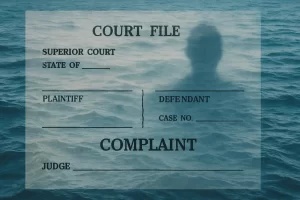

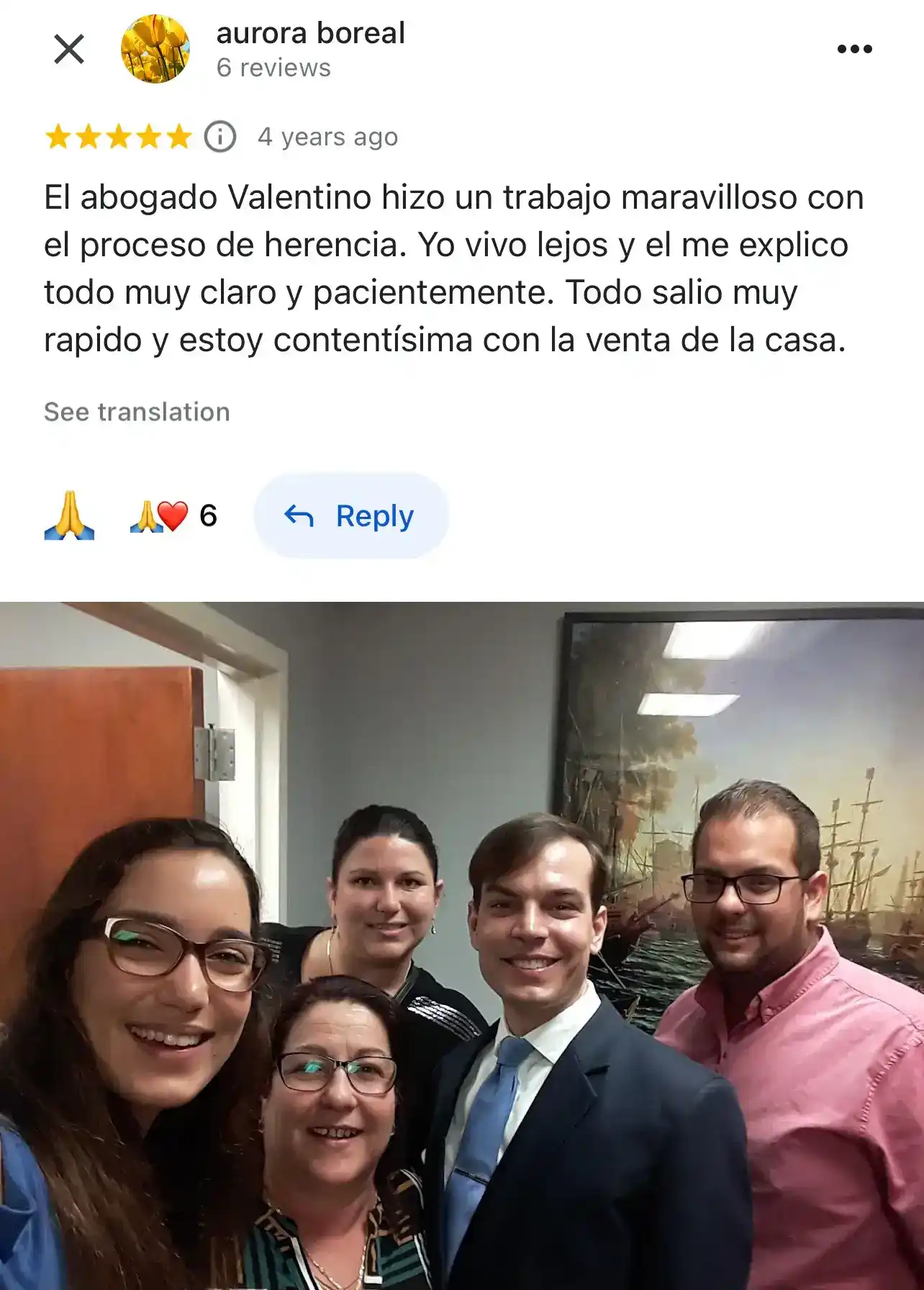







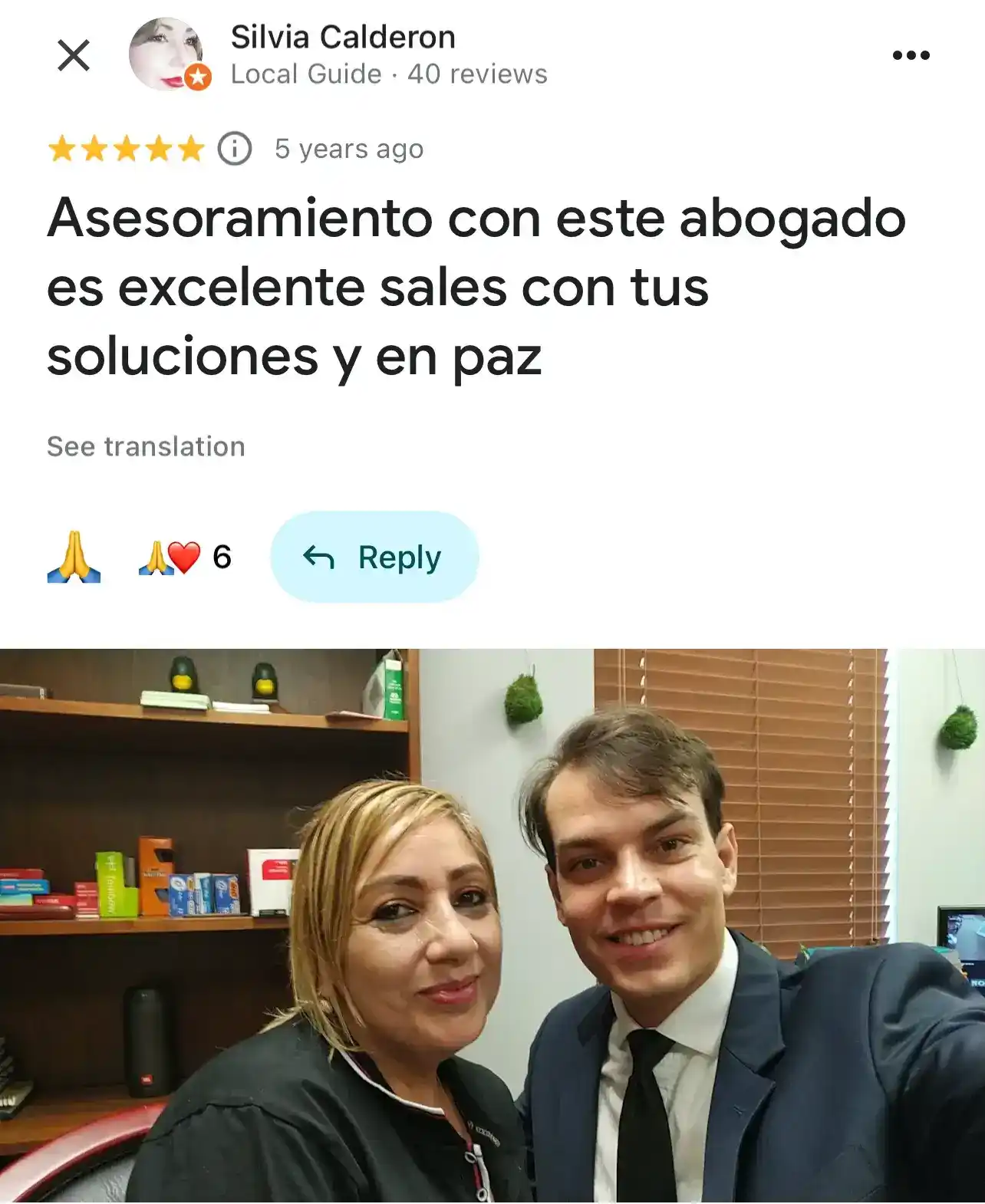


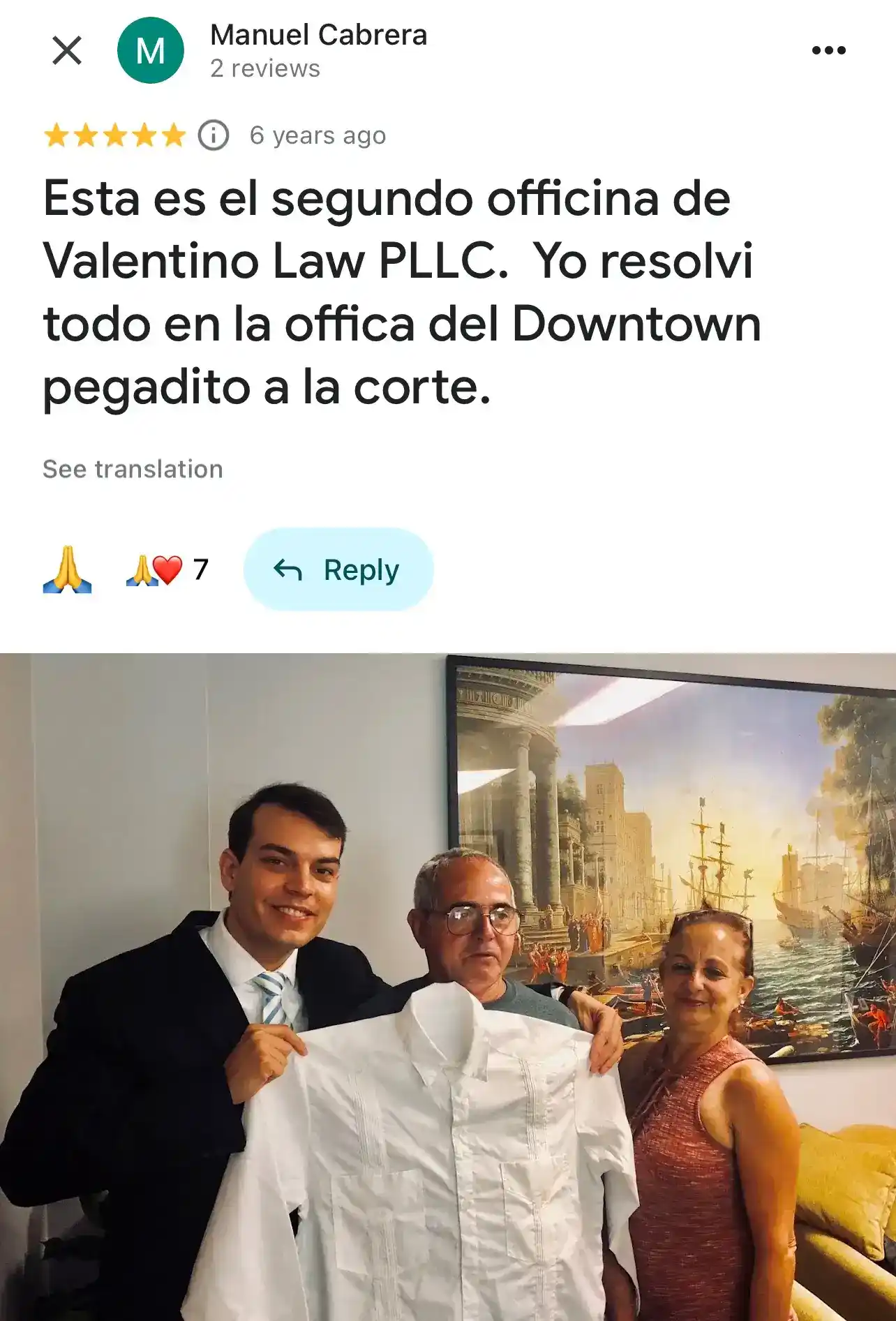

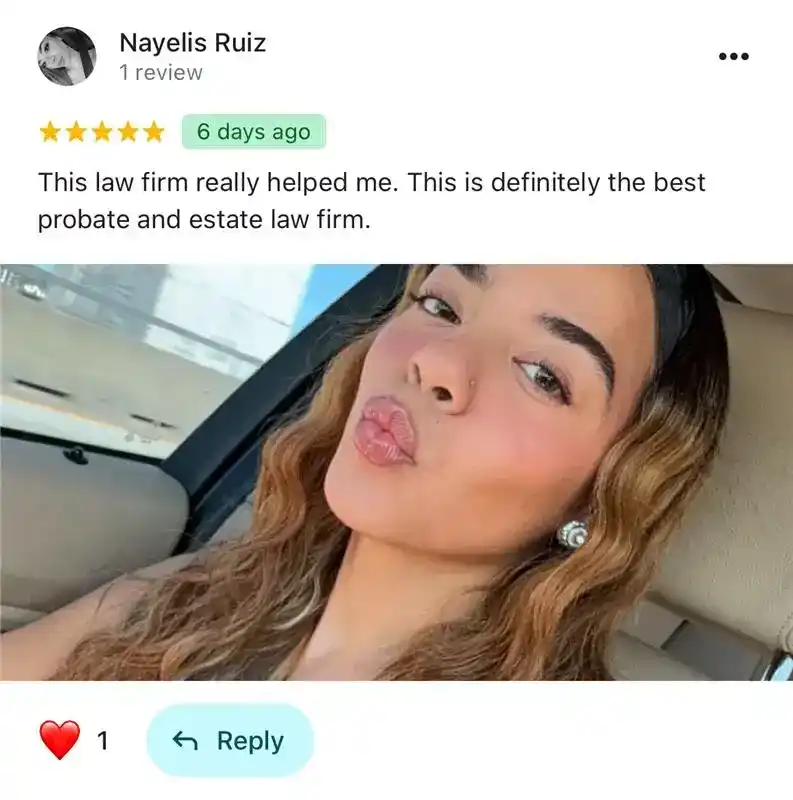
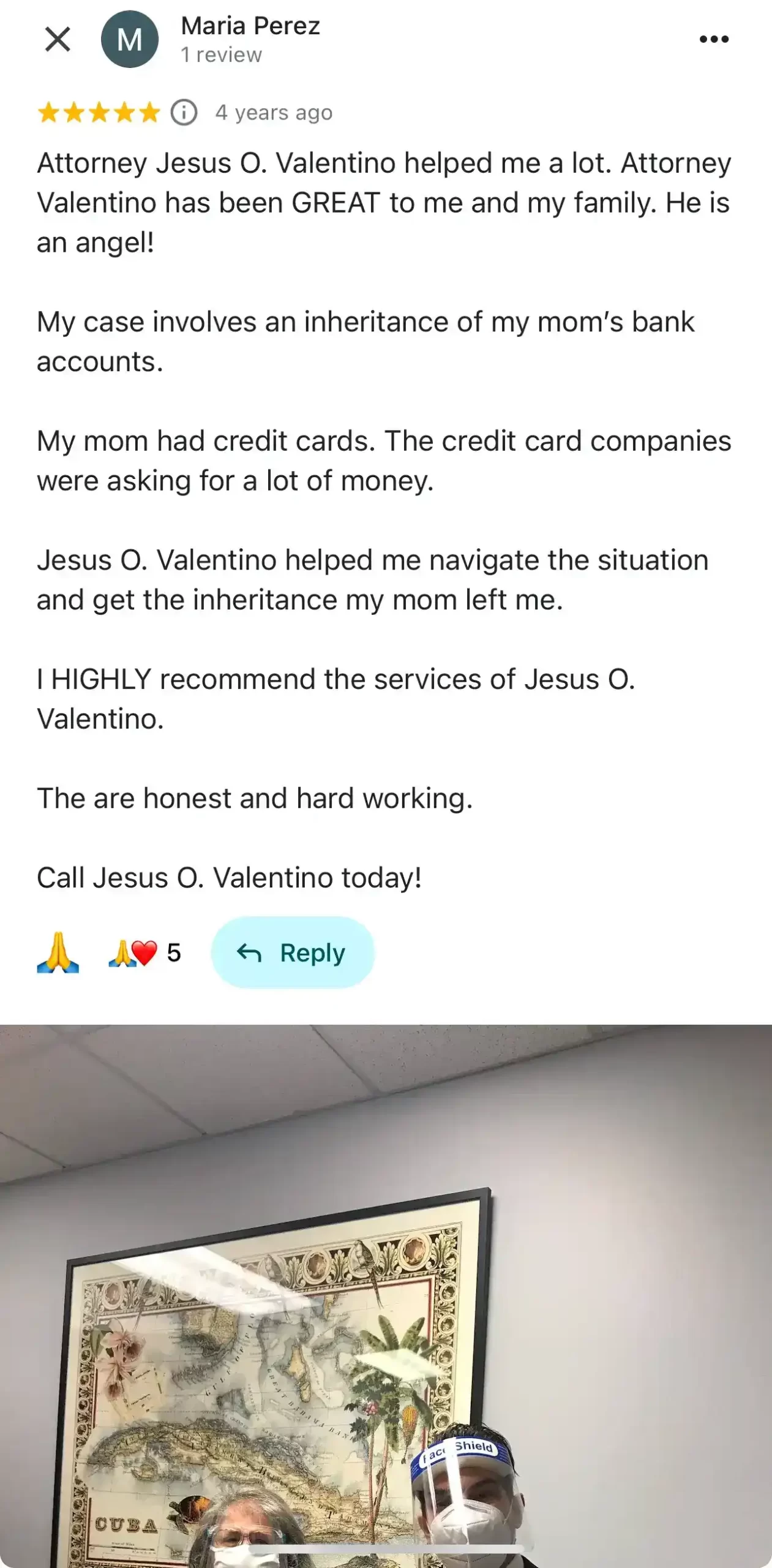
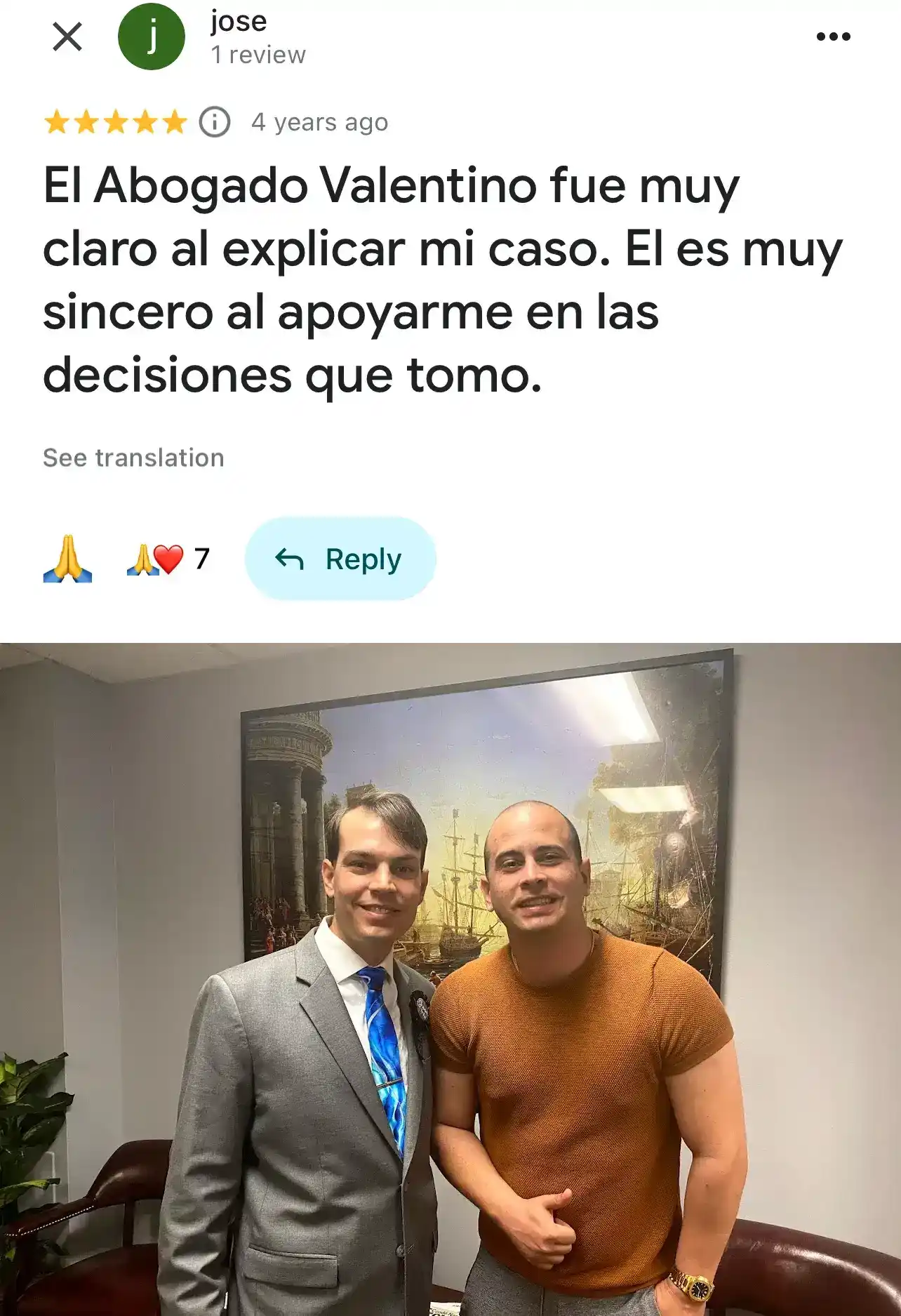




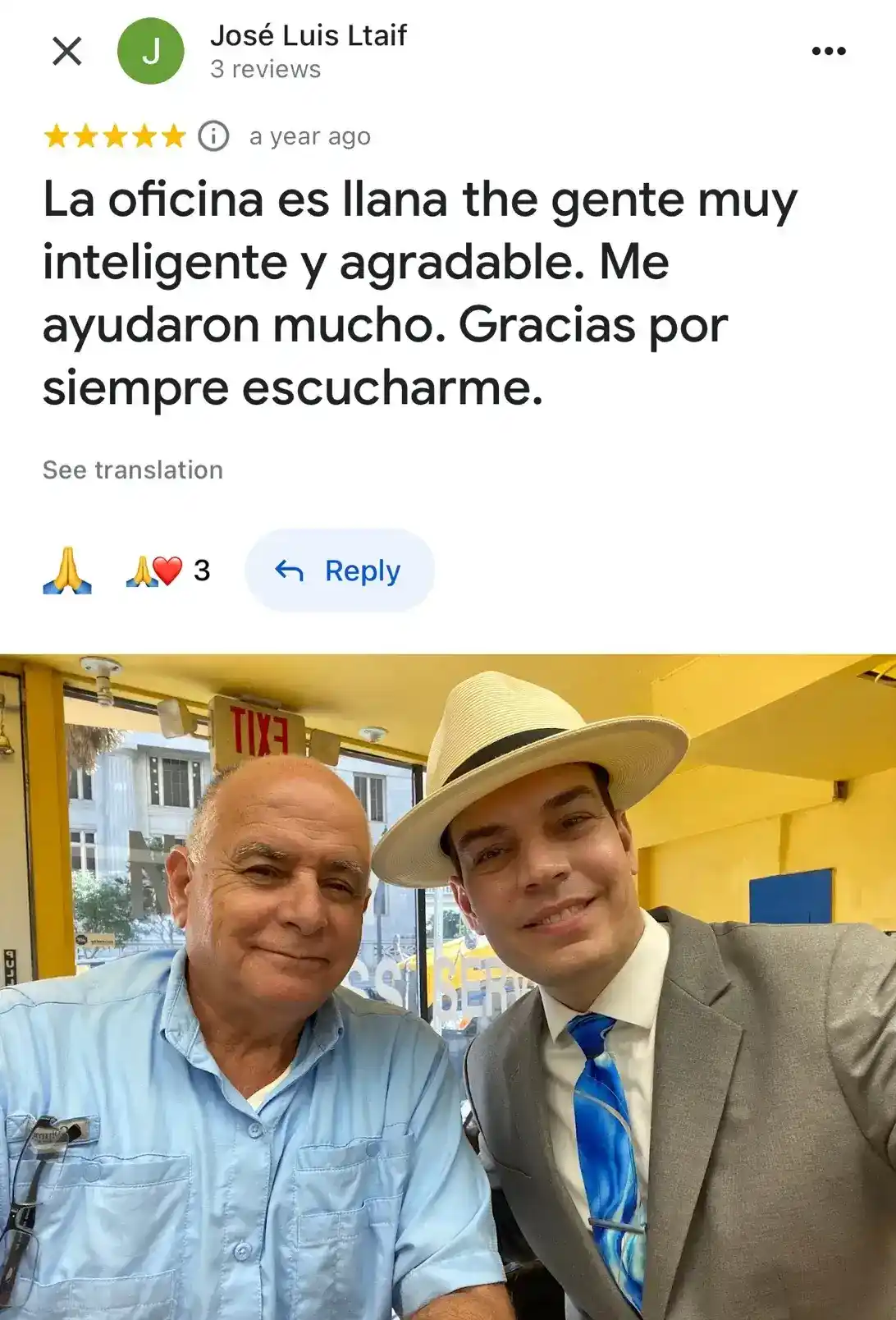
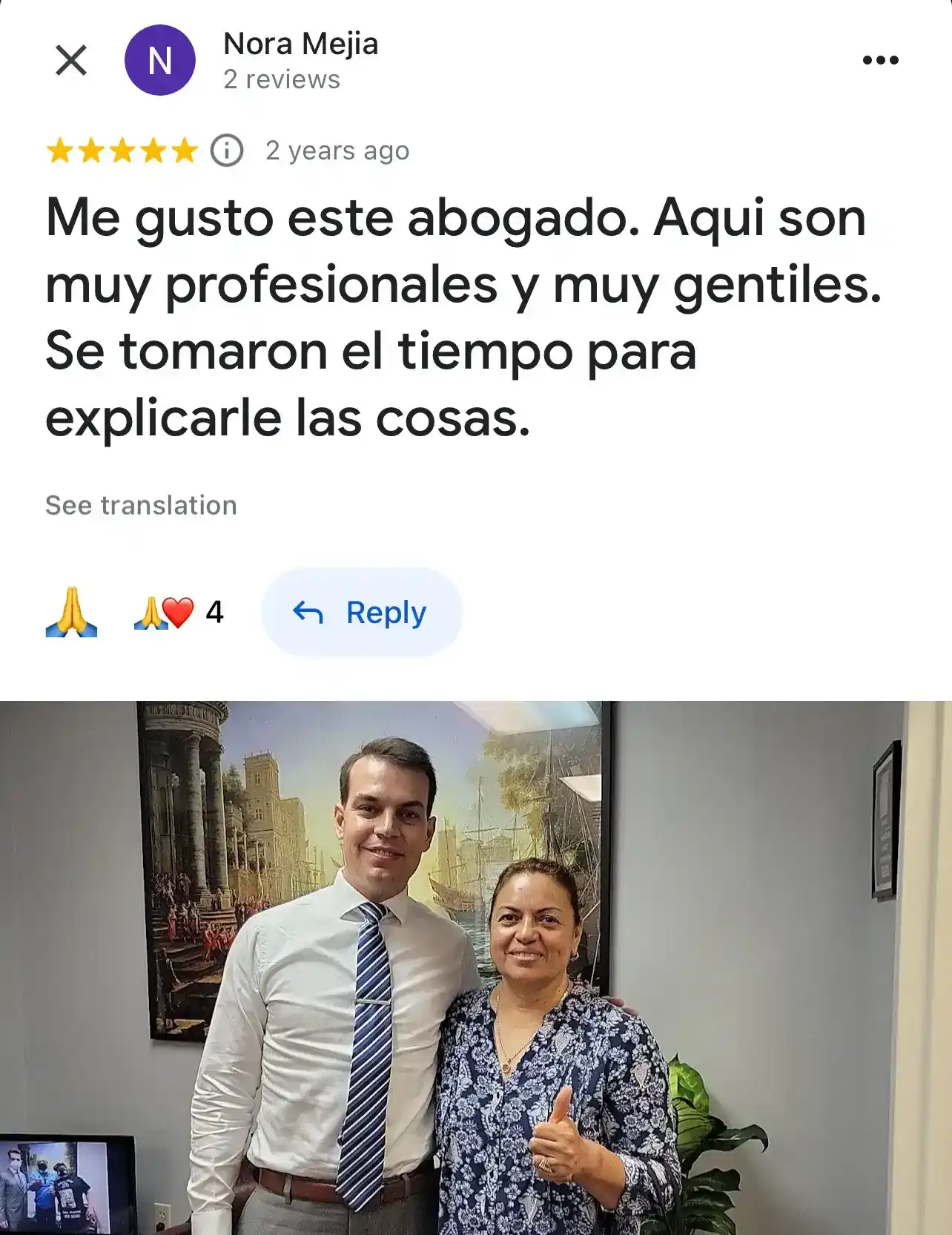



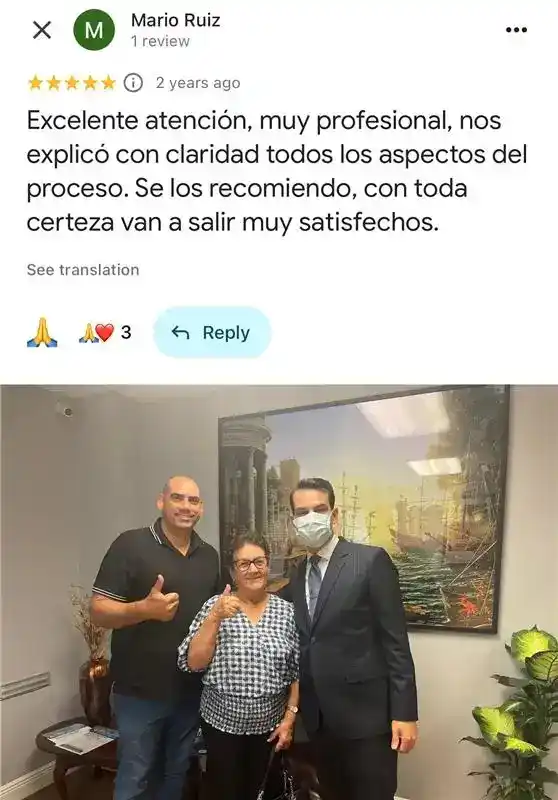








Share: